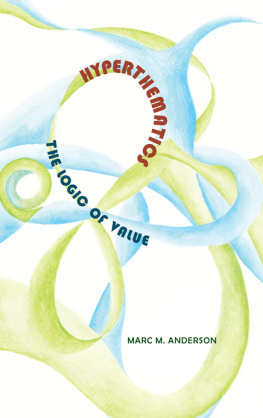Smiraglia - The nature of a work: implications for the organization of knowledge
Here you can read online Smiraglia - The nature of a work: implications for the organization of knowledge full text of the book (entire story) in english for free. Download pdf and epub, get meaning, cover and reviews about this ebook. City: London;Lanham;Maryland, year: 2001, publisher: Scarecrow Press Inc., genre: Religion. Description of the work, (preface) as well as reviews are available. Best literature library LitArk.com created for fans of good reading and offers a wide selection of genres:
Romance novel
Science fiction
Adventure
Detective
Science
History
Home and family
Prose
Art
Politics
Computer
Non-fiction
Religion
Business
Children
Humor
Choose a favorite category and find really read worthwhile books. Enjoy immersion in the world of imagination, feel the emotions of the characters or learn something new for yourself, make an fascinating discovery.

The nature of a work: implications for the organization of knowledge: summary, description and annotation
We offer to read an annotation, description, summary or preface (depends on what the author of the book "The nature of a work: implications for the organization of knowledge" wrote himself). If you haven't found the necessary information about the book — write in the comments, we will try to find it.
Smiraglia: author's other books
Who wrote The nature of a work: implications for the organization of knowledge? Find out the surname, the name of the author of the book and a list of all author's works by series.
The nature of a work: implications for the organization of knowledge — read online for free the complete book (whole text) full work
Below is the text of the book, divided by pages. System saving the place of the last page read, allows you to conveniently read the book "The nature of a work: implications for the organization of knowledge" online for free, without having to search again every time where you left off. Put a bookmark, and you can go to the page where you finished reading at any time.
Font size:
Interval:
Bookmark:
The Nature of A Work
Implications for the
Organization of Knowledge
Richard P. Smiraglia

SCARECROW PRESS, INC.
Published in the United States of America
by Scarecrow Press, Inc.
4720 Boston Way, Lanham, Maryland 20706
www.scarecrowpress.com
4 Pleydell Gardens, Folkestone
Kent CT20 2DN, England
Copyright 2001 by Richard P. Smiraglia
All rights reserved. No part of this publication may be reproduced, stored in a retrieval system, or transmitted in any form or by any means, electronic, mechanical, photocopying, recording, or otherwise, without the prior permission of the publisher.
British Library Cataloguing-in-Publication Information Available
Library of Congress Cataloging-in-Publication Data
Smiraglia, Richard P., 1952
The nature of a work : implications for the organization of knowledge / Richard P. Smiraglia.
p. cm.
Includes bibliographical references (p. ) and index.
ISBN: 978-0-8108-4037-9
1. Information organization. 2. BibliographyMethodology. 3. Cataloging. I. Title.
Z666.5 .S47 2001
025.3dc21
Library of Congress Control Number: 2001020328
 The paper used in this publication meets the minimum requirements of American National Standard for Information SciencesPermanence of Paper for Printed Library Materials, ANSI/NISO Z39.48-1992. Manufactured in the United States of America.
The paper used in this publication meets the minimum requirements of American National Standard for Information SciencesPermanence of Paper for Printed Library Materials, ANSI/NISO Z39.48-1992. Manufactured in the United States of America.
Contents
Tables
Figures
Preface
To the best of my knowledge, there has never been a book devoted exclusively to the concept of the work. I am quite certain there has never been such a book in the field of information studies. So I am pleased to have had the opportunity to pull this material together for the first time. A book such as this is needed to inform the continuing development of catalogs, search engines, and all sorts of information retrieval tools that will be able to lead people through the maze of editions and revisions and translations of the works they seek. The primary focus of this book is the definition of the work. A secondary focus is the evidence of the patterns of mutation that can be observed among representations of works in the academic canon.
This book (I am aware of the irony of writing a work about a work) has been a long time coming. I present the manuscript with a combined sense of accomplishment at having pulled this material together, and of chagrin that there is so much yet undiscovered about the nature of a work. Nevertheless I see this as a start at explaining the parameters of works and I am confident that as research proceeds we will eventually arrive at one or more useful theories of the work.
I chose the title for this book with careful deliberation. This is not an exhaustive treatment of the nature of a work. Rather, it is a first attempt at bringing together material from both inside and outside the discipline of information studies to see what might be learned. The historical narrative that really opens the volume is not exhaustive but it is indicative. Lubetzkys writing, for instance, is saturated with concepts related to the nature of a work. It is really he who guided the cataloging community toward an understanding that works were central objects for retrieval. In this narrative I cite some key passages from his writing that point the way toward our current understanding of the concept of the work.
The Nature of A Work has its origin in my 1992 dissertation research. The history of the concept of the work in Anglo-American cataloging began as a paper that I wrote prior to the beginning of my dissertation. I needed an operational definition of a work to facilitate my research into the derivative bibliographic relationship. As was demonstrated in that research and as is demonstrated in this book, that definition derived from Wilson and Carpenter has worked very successfully. There has been nearly a decade of research since the writing of the original paper. That effort is chronicled here as well.
Readers of this volume will find somewhat lengthy quotations from several of the most notable authors to comment on the work. I hope these quotations reveal something of the flavor of these writers contributions. We begin with Hyde and move through quotations from Panizzi, Jewett, Pettee, Verona, and Lubetzky. We are fortunate to have Carpenter and Svenonius valuable 1985 compilation of these classic texts. I also cite heavily from work by Wilson, Tanselle, and Domanovsky, as well as from material by Foucault, Saussure, Barthes, and Peirce.
Many authors over the years have passed on the opportunity to look at linguistics or semiotics or philosophy or even bibliography as sources of enlightenment about the work. I was delightfully surprised to discover so much useful material that could be brought to bear on this topic. I hope my review encourages others to dip into the interdisciplinary opportunities that studying the work presents.
This volume incorporates a great deal of material from four studies. To data from my 1992 dissertation is added material from a study supported by a 1993 grant from The OCLC Online Computer Library Center. This grant allowed Greg Leazer and me to work on the concept of the work in the environment of a large bibliographic utility. We have produced several papers between usLeazer (1994), Smiraglia (1994), Smiraglia and Leazer (1995), Leazer and Smiraglia (1996), Smiraglia (1996), Leazer and Smiraglia (1999), and Smiraglia and Leazer (1999). The data demonstrated in this volume come from the most recent iteration (Smiraglia and Leazer 1999). To that is added data from Sherry Velluccis 1997 book on bibliographic relationships in music catalogs, as well as data from my current research into theological works (Smiraglia 1999). The four together make a good case for further replication of their common methodology.
A sidelight: In the course of drawing the sample from the shelf list of the Burke Theological Library at New Yorks Union Theological Seminary, I had the delightful experience of romping through Julia Pettees immaculate catalog. I was at once awed by her legacy and charmed by the opportunity to observe firsthand the catalysts for her theory of the literary unit.
The comparison of the results from the four studiesthe only research deliberately designed to uncover the parameters of derivative bibliographic relationshipsyields good evidence supporting the outline of a potential theory of the work. Readers who are already familiar with the four studies might find it felicitous to dip ( la Barthes) into the introduction and conclusion of , preferring to move along to the conclusion of the book.
I conclude with the tentative outline of a theory of the work that leaves plenty of room for further research. Two appendixes contain charts demonstrating the evolution of concepts and definitions of the work and their instantiations. A third appendix contains a summary of the sampling technique employed to generate the data in . As there is much terminological disparity in the study of works, I close with a glossary of terms as I used them in this volume.
I have enjoyed studying the nature of a work. It seems clear now that we are on the threshold of the development of tools for the deliberate collocation and retrieval of works. I am pleased to have played some small role in the advancement of the theory of the work.
Acknowledgments
This project has involved much discussion and consultation with colleagues over many years as my ideas were shaped and reshaped. The research into bibliographic families that initially formed the core of this material continues to inform my musings and my conclusions as well. At several junctures along the way I have shared material with colleagues whose responses have helped me reshape the individual essays and the overall thrust of the text. And yet, as those who read the whole volume will understand, this represents only one point on a continuum. I hope it turns out to be a good place to pause for reflection, and that this material will serve as a catalyst for much further exploration of the ideas brought together here.
Next pageFont size:
Interval:
Bookmark:
Similar books «The nature of a work: implications for the organization of knowledge»
Look at similar books to The nature of a work: implications for the organization of knowledge. We have selected literature similar in name and meaning in the hope of providing readers with more options to find new, interesting, not yet read works.
Discussion, reviews of the book The nature of a work: implications for the organization of knowledge and just readers' own opinions. Leave your comments, write what you think about the work, its meaning or the main characters. Specify what exactly you liked and what you didn't like, and why you think so.








